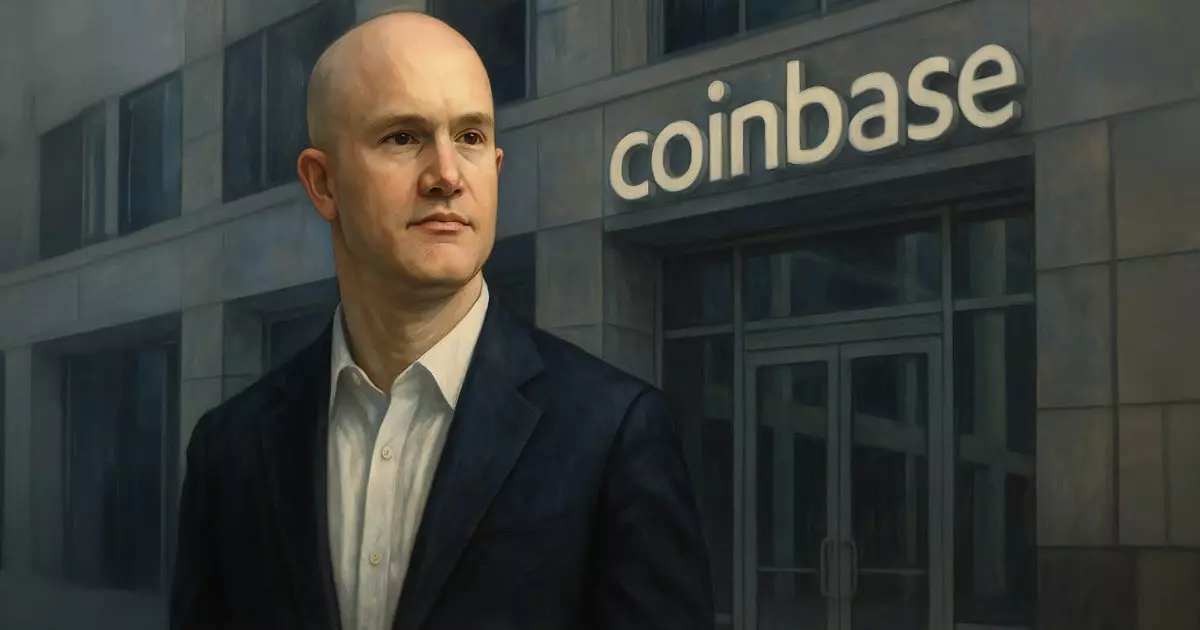In an unexpected and intriguing move, Coinbase CEO Brian Armstrong recently extended an open invitation for employees of the U.S. Department of Government Efficiency (DOGE) to transition to roles at his crypto exchange. This declaration, initially made public on May 14, is framed not merely as a recruitment tactic but as an ideological alignment for public servants who wish to extend their mission of reforming inefficient systems. Armstrong’s message hints at a larger motive – the desire to reshape financial infrastructures at a time when traditional systems face scrutiny and pressure for innovation.
However, one must ponder whether this approach is more opportunistic than altruistic. Armstrong’s invitation begs the question: are government workers equipped with the necessary skills to drive progress in the fast-paced world of cryptocurrency? Or is this merely a strategic play by Coinbase to harness a workforce familiar with high-stakes government operations without bearing the brunt of extensive training for newcomers?
A Bit of Context
The DOGE initiative, established by an executive order from Donald Trump, was envisioned as a radical approach to streamline governmental inefficiencies, an ambitious mission led by none other than Elon Musk. Musk’s involvement has garnered fame and notoriety, igniting fervent discussions about the sustainability and implications of such a bold governmental experiment. Armstrong’s offer, tied closely to the concept of efficiency and innovation, could reflect a deeper need for financial platforms to bring in talent that emphasizes agility rather than bureaucracy.
This announcement comes as DOGE is expected to wind down operations by July 2026. Simply put, it is a call for those who have deconstructed governmental red tape to now put their skills to work in a realm where flexibility, tech-savvy solutions, and user-centered design are pivotal. Nonetheless, this sort of transition raises the stakes on practical expertise versus theoretical knowledge. Can these former government employees adapt to the whims of a crypto marketplace marked by volatility?
The Underlying Sentiment
Armstrong’s outreach coincided with a wave of public interest surrounding DOGE, spurred by media narratives like FOX News interviews that uncover the human aspect behind these bureaucratic transformations. Earlier sentiments, expressed by former DOGE staff member Ethan Shaotran, reveal a community struggling in the shadows of traditional educational systems and societal expectations. His departure from Harvard to join DOGE underscores the tension between conventional career paths and innovative disruptions.
The S&P 500 induction of Coinbase marks a significant milestone not just for the firm, but for the entire crypto industry, signaling an integration of digital assets into mainstream finance. By targeting DOGE employees, Coinbase underlines the allure that efficiency-oriented thinking has for them. However, if Coinbase is genuinely interested in redefining the financial landscape, it must also ensure that it respects the complexities and intricacies that come with such transformations.
While embracing talent from unorthodox backgrounds can innovate, it must be accompanied by a critical evaluation of how these individuals can effectively adapt within a high-stakes, rapidly evolving market. Armstrong’s invitation is bold, but with great ambition comes the necessity for caution; if the goal is true disruption, then a nuanced approach to recruitment and integration must replace mere opportunism.

